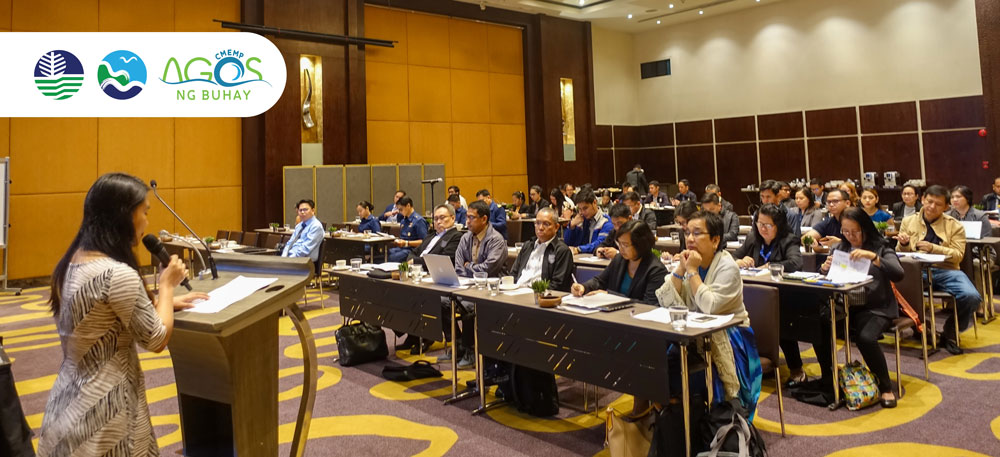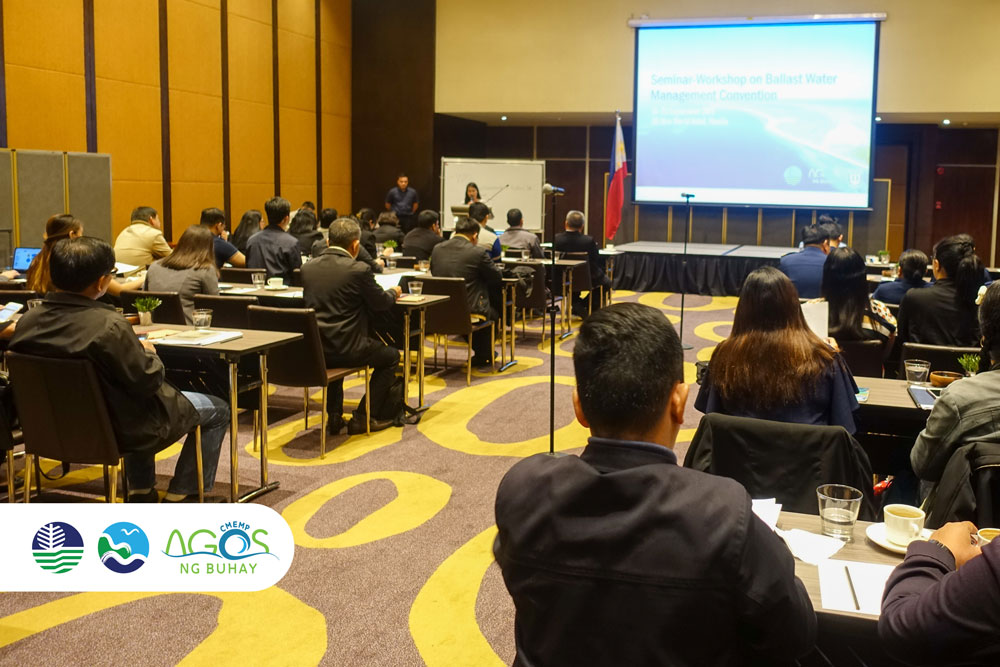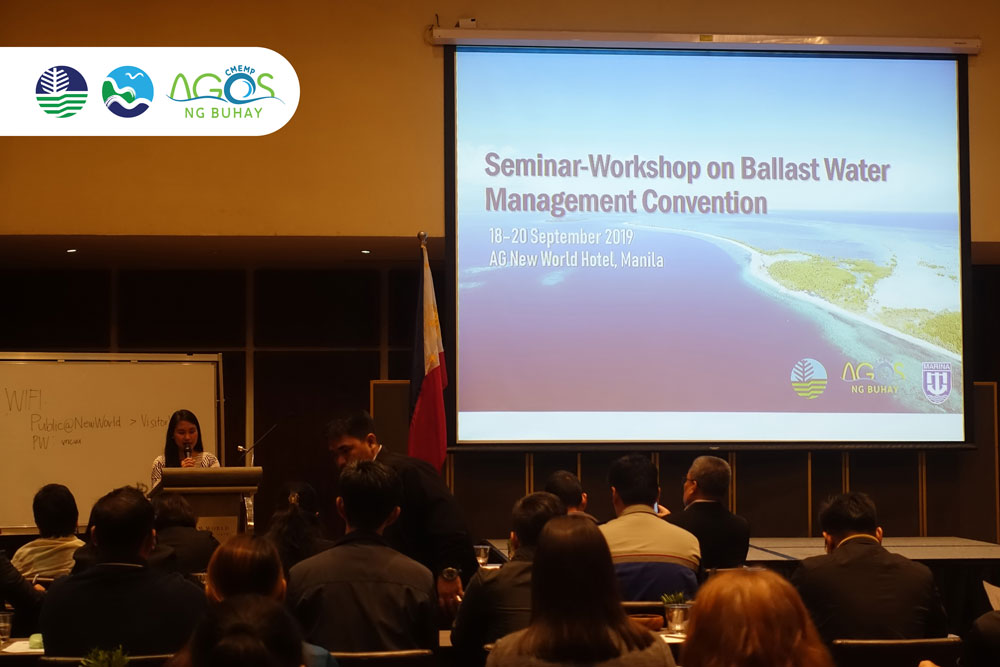
MANILA – “Shipping should be in harmony with the environment:” This is the central message of the three-day Seminar-Workshop on the Ballast Water Management (BWM) Convention organized by the Biodiversity Management Bureau (BMB) of the Department of Environment and Natural Resources in conjunction with the Maritime Industry Authority (MARINA).
The conduct of the seminar-workshop coincides with the celebration of the Maritime and Archipelagic Nation Awareness Month, which aims to enhance awareness and literacy of Filipinos across all sectors on the country’s archipelagic features. OIC Assistant Secretary for Staff Bureaus and BMB Director Ricardo L. Calderon, represented by BMB Senior Ecosystems Management Specialist Criselda B. Castor, expressed optimism on the Philippines’ increasing awareness and protection of its maritime wealth amidst the decline of the country’s resources over the years.
On the same note, MARINA – Officer-in-Charge VADM Narciso A Vingson, through Director Ramon C. Hernandez of the MARINA – Shipyards Regulation Service emphasized the crucial role of the shipping sector in the Philippines as a maritime nation. Surrounded by bodies of water, the Philippines’ most efficient mode of goods and passenger transport is shipping. Dir. Hernandez stressed, however, that the shipping sector also bears disadvantages, particularly to the environment.
Getting Acquainted with the BWM Convention
Sea conditions and situations of ships while at sea are unpredictable. As such, ships carry water in their ballast tanks to improve stability, structural integrity, and navigational safety. When water is loaded into the ship, various biological materials such as plants and bacteria are sucked up into its ballast tank. At such point that water has to be unloaded back into the sea, these said materials are introduced to the new environment and become invasive, which can cause damage to aquatic ecosystems. According to the International Maritime Organization (IMO), this is one of the greatest threats to the world’s oceans.
To prevent further ruin to the marine environment, the BWM Convention was adopted by the IMO in 2004. It prescribes regulations on the proper management and treatment of ballast water and sediments discharge. The said convention entered into force in 2017.
PH Government action on the BWM Convention
The BWM Convention was ratified in the Philippines in 2018. As of now, the MARINA is in the process of finalizing the rules and regulations on the BWM Convention through the Implementing Rules and Regulations to Control the Transfer of Invasive Aquatic Species by Ships and Providing for the Implementation of the International Convention for the Control and Management of Ships’ Ballast Water and Sediments, 2004, Providing Penalties for Violations Thereof, and for Other Purposes. This is a joint effort of the BMB, MARINA, and other concerned government bodies in the maritime industry. The country’s strategic action plan on BWM, on the other hand, is undergoing further study and consultation.
The 3-day seminar-workshop is being held at the New World Manila Bay Hotel until 20 September 2019.






